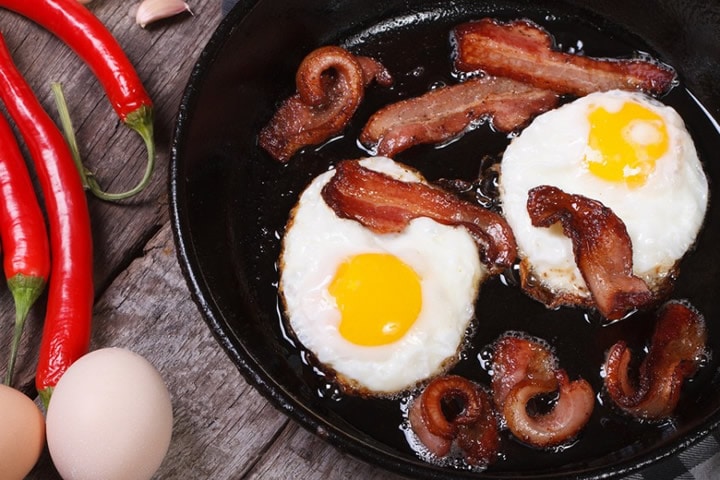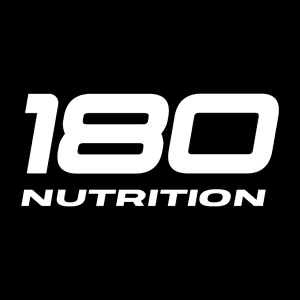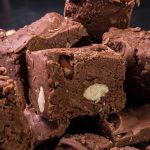Guy: With all the confusion out there on whether athletes should be eating more dietary fats or carbohydrates for enhanced performance, who better to ask than Dr Kieron Rooney; a biochemist from the University of Sydney. Kieron’s wealth of knowledge is incredible and he has a long standing interest in the basic science behind low carbohydrate diets.
He will be hosting Sydney’s June event featuring low carb for athletic performance expert Professor Jeff Volek – “Nutrition for Optimising Athletic Performance”. Over to Kieron…
1. Do the benefits of a LCHF (low carb high fat) diet only apply to endurance athletes in sports?
Good question! My gut response is that this would be the population it makes the most sense to focus on initially as they are typically the athletes in which performance / fatigue has been traditionally shown to be most influenced by dietary strategies during an event and (possibly prior). But that is most likely an artefact of the duration of non-endurance events – not much time to suck down a ricotta stuffed olive when your 100m event is over in 9 and a bit seconds; and nor do you have the hands free in a power lifting event.
Dr Steve Phinney’s original work in the 80’s set the scene for endurance athletes to be primary participants and lots of the big name stories coming out are endurance athletes as well… It may just be though that the non-endurance athletes are yet to be convinced.
If we unpack this a little more, what are the benefits of LCHF you are referring to?
If we think of an endurance event, then the conventional wisdom is that your ultimate performance will be reliant on a steady supply of carbohydrate during the event. This will primarily be met by glycogen stores, perhaps gluconeogenesis in the liver and then anything else you can consume in goos and drinks and the like during the event to sustain blood glucose levels and “spare” your muscle glycogen stores. This research is quite repeatable and has led to feeding strategies such as carb loading and the like being standard approaches to enhance performance. But this would be in athletes that are “carb adapted” individuals. These are athletes that are most likely consuming large amounts of carbohydrates each day of their lives and as such have an energy system that is dependent on carbohydrate fuels.
My understanding of the LCHF approach is that you play the long game – live LCHF and adapt your system away from this reliance on carbohydrates, then the fuels (and ultimately performance) you are relying on during your event will less likely to be glycogen and carbohydrate intake as you are tapping into the larger fuel reserves of body fat.
A key question then is in ultra-endurance events and the like, where no doubt some food is necessary – what do you eat?
This is a question I look forward to hearing Jeff Volek discuss.
If we go back to your question just briefly. IF we are looking for signs that LCHF may have a place in the development of athletes outside of traditional endurance events, my reading of the LCHF approach is that a state of nutritional ketosis results in a preservation of muscle mass. In their book “Art and Science of Low Carbohydrate Performance” There is discussion of studies reporting in LCHF participants in which protein sparing occurs via reduced oxidation of the Branched Chain Amino Acids. This would suggest for athletes preparing for events that are not typically endurance but reliant on muscle power, perhaps the LCHF will have a place – we just need for literature to get there.
2. Do you need to be in ketosis to fully benefit from a LCHF diet?
Great question, of course one needs to be wary of what is identified as a “benefit”. If we are focussing on athlete performance in their endurance event then my reading of the LCHF approach is that yes, it is an all or nothing approach, you can not dip your toes in and out of brief periods of carbohydrate restriction as your body will be in a continual state of switching between differing adaptation states.
If you are not in nutritional ketosis but are doing a “lower” (rather than “low” carb approach (somewhere on the continuum of less than 130g a day but not quite as low as the 50g often reported as the threshold for nutritional ketosis) then you are likely developing a system that is still reliant on carbohydrate fuels, but because you have gone lower carb they are not around, and because you are not in ketosis then the ketones aren’t around to meet the energy demand and so you are in danger of not meeting energy needs in your exercise effort.
If though your focus is on weight loss / maintenance I think there is more scope here for a lower carb approach as some studies would show you can get health improvements coming down to the 100-130g level. Whether or not you would be in “nutritional ketosis” at this level is something I hope Jeff will talk about.
3. How long does it typically take to become fat adapted?
This varies with the individual. Jeff Volek has done extensive research on this, and according to his book; The Art & Science of Low-Carbohydrate Performance estimates between 3 – 8 weeks to become full fat adapted.
4. In your experience what is the average macro-nutrient profile for ketosis?
I have no experience other than my own. You will need to be careful on this one, I often see people (nutrition professors and the like) mix their macronutrient profiles discussion around absolute amounts and % contributions. Jeff and Steve’s books often state it as no more than 5-10% of your total daily energy intake from carbs (so for someone on 2000 calories that would be a max of 50g).
Protein has to be kept moderate as well and is given as 1.2-1.5g/kg body weight (although they specify “reference weight” which I hope Jeff unpacks a little more) so this would be about 90-110g for a 75kg individual (approximately 20% total energy) but this would be a maximum I believe as there is reference in the LCHF books to avoid “high” protein. You then make up the rest of your energy needs with fats which could end up being anywhere between 70-80% of your energy intake which on 2000 calories a day would be about 150-180g of fat.
5. What is the ideal sports drink?
Water!






